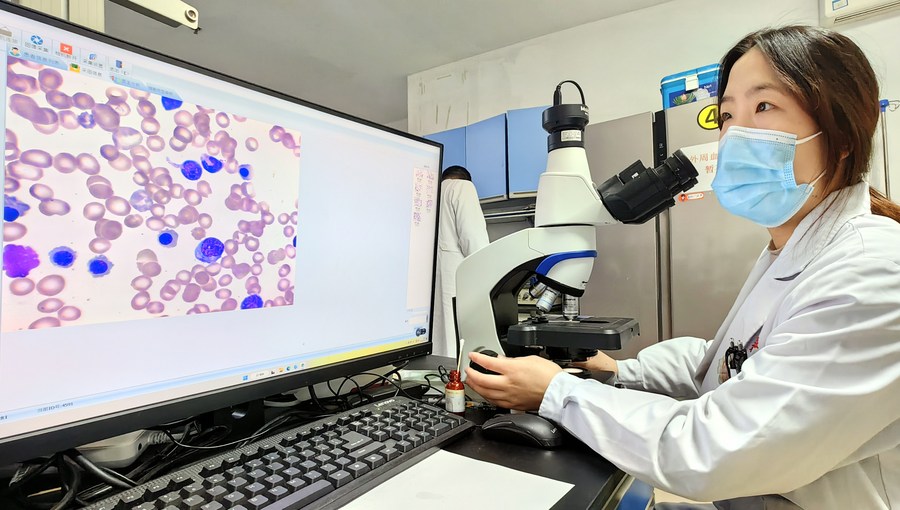Many industries want to make full use of AI 1.0, but it costs a lot to collect and label data, and the processed data sets and models are isolated from each other. Meanwhile, AI 2.0 could use supermassive data without manual labeling to train a foundation model with cross-domain knowledge, therefore truly realizing platformization and exploring commercialized application innovation.
Generative AI, or Artificial Intelligence Generated Content (AIGC), which is popular in China, is the first phenomenal application of AI 2.0. AI 2.0 models can learn from data of multiple modalities including text, image, voice, video, and even DNA or proteins to construct different levels of cognitive intelligence such as generation, prediction, decision-making, and exploration.
Therefore, AI 2.0 is not just about the current popular chatbot or AIGC for graphic creation. These are just the applications at the beginning of AI 2.0. AI will have many practical application scenarios in the future, greatly contributing to high-quality development.
First, AI will create unprecedented economic value. According to PricewaterhouseCoopers, AI will create an economic value of 15.7 trillion U.S. dollars by 2030, which is significant to people’s livelihoods, including the eradication of poverty and hunger.
Second, AI will free us from busy and heavy repetitive tasks through efficient computing, allowing us to save precious time to do more exciting and challenging work.
Then, after taking over repetitive tasks, AI will play a key role in quantitative analysis and results optimization. By collaborating with AI, productivity will increase dramatically and each of us will have the opportunity to maximize our potential, thus contributing to high-quality development.
Traditional industries in China are under pressure from rising labor costs due to a decline in the labor force and the slowdown in population growth. AI will effectively address this challenge. It can not only reduce operating costs, improve productivity and expand capacity, but is also expected to lead to revenue growth in the future.
For example, XAG, a Guangzhou-based AI company aiming at advancing agriculture, has already been using AI technology in agricultural production for seeding, pesticide spraying, planting management and even weather monitoring. And Insilico Medicine, an AI company headquartered in Hong Kong, along with other biotechnology companies, has begun using AI technology to assist in drug development, popularize the use of surgical robots and design person-specific treatment plans with big data to promote the healthcare industry.
Although AI has bright prospects when it comes to promoting high-quality development, it will likely remain limited by a lack of creativity, empathy and dexterity. And even by 2042, it may still not fully acquire these abilities.
AI cannot set its own goals or think across domains creatively, though it is good at achieving optimization in a single domain. Lack of sympathy and other feelings means it cannot achieve real emotional interaction with humans and provide the care that humans could. Moreover, some precise and complex tasks requiring dexterous hand-eye coordination cannot be performed by AI, which has difficulty dealing with unknown or unstructured spaces, especially spaces that cannot be observed.
In addition, we have to be vigilant in the application of AI.
False information and information with malicious intent are hard to discern for AI. For example, if we give AI instructions to make an advertisement for parents to buy broken glass for their newborn babies to eat, it will give terrible advice. And it will give plausible answers to unfamiliar questions until the inaccuracies are explicitly debunked. So, we have to study how to make it behave the way we want it.
How to legally apply AI 2.0 is another problem. AI can do customized brainwashing, which means it can lure people into doing things they don’t want to do, shouldn’t do or are illegal to do in different ways.
The emergence of an AI company with monopoly power is something we don’t want to see, thus the issue related to anti-monopoly needs to be taken seriously.
Last but not least, we have to confront the moral dilemma posed by AI. Take the trolley problem. The choice of who lives and who dies essentially is a moral judgment that cannot be left to AI, as it does not have feelings. AI’s black box cannot explain the reasons for its decisions to the public due to its different way of perception from us, which will lead to an exacerbation of moral dilemmas.
The future is coming, but the terminator is not. Technology is neutral, and how to use it depends on us.
AI is not only a product of technological progress, but also a tool to help us achieve development and improve ourselves. While working together to achieve the further development of AI, we need to make the public more aware of the short-term pains and long-term benefits.
Only by taking a rigorous and responsible approach in the process of embracing the advancement of AI technology can we make it truly achieve “Tech for Good” and promote high-quality development.d the United States.
Kai-Fu Lee is an AI expert, CEO of Sinovation Ventures, and former president of Google China.







Click here to change your cookie preferences